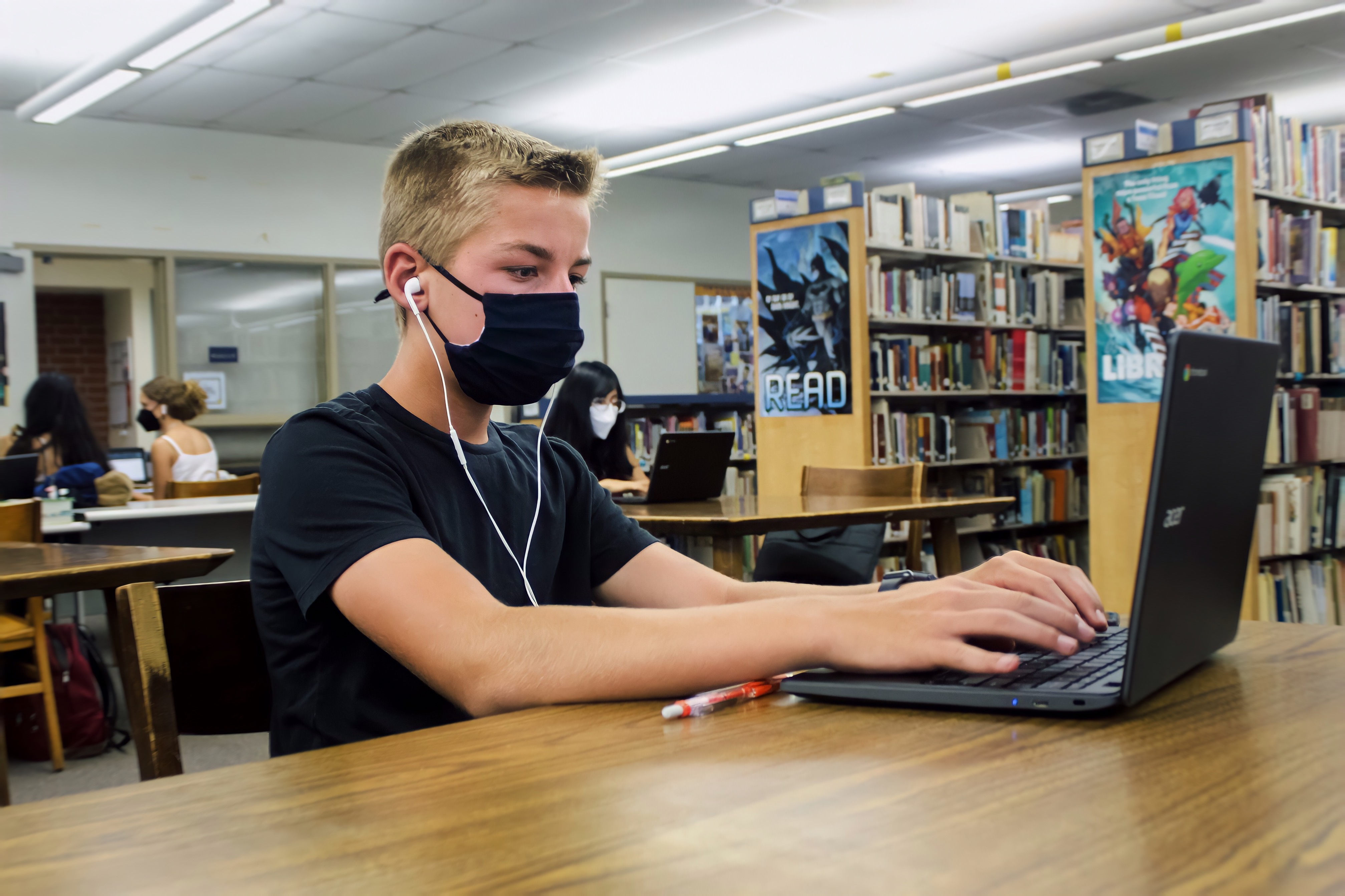
By Sarah Yoo
To no one’s surprise, mental health in American teenagers has generally worsened over the pandemic, with a 31% increase of mental health-related emergency visits since 2019. Depression, anxiety, substance abuse and suicide have also been reported to be at higher rates. Pressure from family-related issues, school and media, as well as long term isolation, have been a few causes of these heightened mental health concerns. Economic concerns, trauma from abusive households and living with a high-risk family member have also contributed
Some students at Fountain Valley High School (FVHS), on a more positive note, felt as if their mental health improved during the time at home because they were able to spend more time for themselves. They were able to find ways of connecting online, like games and social media. Nevertheless, many still felt a heavy mental burden over quarantine as there was no healthy outlet for stress at home. Their social life became unsatisfactory as well because they were falling out with friends or found communicating online challenging.
“I feel like the pandemic, in a good way, helped me focus on myself more because we’re at home a lot. But I felt really isolated from everyone else during the pandemic so it was a hard time mentally there too,” junior Tony Nguyen said.
Now, after a long quarantine, we are suddenly back at school. This sudden transition may come with consequences to the mental health of students, similarly to the unanticipated lockdown last year. Some changes that occurred during the pandemic may be here to stay. For example, changes in behavior are to be expected. According to the CDC, kids with developmental, behavioral, or emotional problems are more likely to experience worse mental health coming back and have difficulty transitioning. Issues with anxiety or depression that existed before the pandemic are also likely to exacerbate after the year-long quarantine.
Our students had mixed feelings about the transition back to campus. While some were excited to reconnect with their friends, others felt nervous about the transition, especially with classes, time management, getting lost and facing large crowds—all unfamiliar situations now that more than a year has passed.
“The first day was super stressful because of the amount of people [at school]. I used to just walk around the halls and not run into anybody, but now there’s people everywhere,” senior Faith Martin said. “But now it’s easing back into being a little bit normal.”
Despite these worries, students were generally positive about returning. Many believed that going to school in person would benefit their mental health because it provides more stability and social opportunities, unlike online school. Focusing on studies and activities will additionally become easier in a classroom setting.
“It’s a whole different routine…but I feel like it’s going to be really fun,” sophomore Sophia Le said.
Because of all the challenges of transitioning back to in-person schooling, FVHS has taken measures to help students feel more grounded in the new environment. Students responded that the greatest help were the teachers and fellow classmates, who were very welcoming and made the transition much smoother. They have also noted that the Associated Student Body has been a positive force in reconnecting students to school culture. Concerns about the virus have also been alleviated to an extent due to preventative measures around campus.
“We’re taking safety measures, like mandating masks indoors and also with the sanitation stations around school. I think it makes me feel a little bit safer being at school again,” junior Tran Nguyen said.
Although the situation is looking upward, there is still much to be considered. Because of the masks that cover most facial expressions, social distancing protocols and lots of new people, it will be easy to miss those around us who need help.
“Just watch out for yourself, watch out for your friends and just lean on each other,” freshman Kim Tran said.





